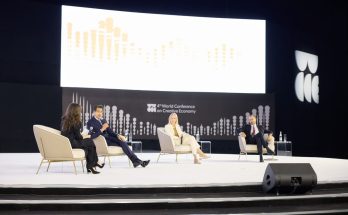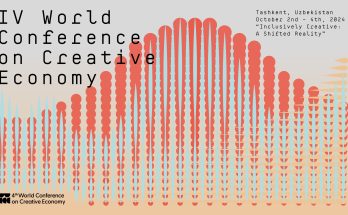 The issue of net neutrality has taken the social media by storm. Over 100,000 emails have been sent to TRAI through the website savetheinternet.in to plead for net neutrality. Videos are being shared to explain the issue to a wider audience (the latest one by AIB, of the infamous roast fame, has gone viral), endearing them to add their names to petitions pleading against any move to dilute the principle of net neutrality. The pro net neutrals are rooting for ‘saving the last bastion of equality’ which will be lost once the corporates takeover. They would be able to manipulate preferences, making it hostile to start-ups, small businesses and basically anyone who cannot pay. The anti- net neutrals gives the familiar neoliberal price/competition argument – the need to price supply as per demand allows for beneficial allocation in an increasingly shrinking space, and that those who put in the infrastructure should be incentivised (by the profit motive) to invest in making the space better.
The issue of net neutrality has taken the social media by storm. Over 100,000 emails have been sent to TRAI through the website savetheinternet.in to plead for net neutrality. Videos are being shared to explain the issue to a wider audience (the latest one by AIB, of the infamous roast fame, has gone viral), endearing them to add their names to petitions pleading against any move to dilute the principle of net neutrality. The pro net neutrals are rooting for ‘saving the last bastion of equality’ which will be lost once the corporates takeover. They would be able to manipulate preferences, making it hostile to start-ups, small businesses and basically anyone who cannot pay. The anti- net neutrals gives the familiar neoliberal price/competition argument – the need to price supply as per demand allows for beneficial allocation in an increasingly shrinking space, and that those who put in the infrastructure should be incentivised (by the profit motive) to invest in making the space better.
As the battle continues, beyond the economics and technicality of the issue lie our worldview, one being framed by atomistic consumerist preferences and the constant compromise equality/ democracy makes in the onslaught of the Neoliberal- systems of economy and society we have nurtured (albeit sub/unconsciously), and affirm as the mainstream.
But first some quick facts.
What is net neutrality?
The principle that all content on the internet should be treated equally- one can access all websites (with equal speed of connection, on all possible devices), once you have internet access.
What is equal access?
Non-discriminatory access and equal distribution of content basically means that service providers should
not create high speed lanes for certain services (such as by, say, collusions between content providers and internet service providers to allow users to access their content much faster- making shopping at say, Ebay, much faster than rival Flipkart when using a certain ISP) and charge excessive tariffs based on demand and paying capacity of the user.
Why is it in news now?
The issue of net neutrality has been debated over the past few years, especially in the West. It has been highlighted now since the TRAI recently released a consultation paper (Regulatory Framework For Over-the-Top (OTT) Services) which proposes to charge user fees based on services (different websites, apps used) accessed by the consumer. It would charge fees from both content distributor and consumer, for incentivizing/ covering costs of ISPs.
The letter to TRAI
Savetheinternet.in, is leading the campaign to root for net neutrality. It has a pre drafted 13 page (!!) letter for the TRAI Chairman, which users can send as it is or an edited version.
Beyond the economics
Questioning the very principle approach of charging user fee brings one to see the issue in light of a larger picture of freedom/ regulation, for profit/ not for profit, and the atomistic individual/ a society of netizens differently placed. How far are we willing to go to have allow luxuries to individuals if they can pay for it. Drawing a more real world analogy, would be just to have say, faster smoother lanes for cars which owners who can afford to pay more?
Ironically (or inevitably), it is in the age of mass production, that things have become more costly. We pay for almost everything- access to water, clean air, green areas. Ownership is considered essential, and the tragedy of the commons is invoked to ‘save’ scarce
resources, which are then appropriated by the state or the corporates. The internet remains the last bastion of equal access, where, for most part, one can navigate freely. Though internet content may be a representation of the fragmented Self, and fractured ego, it still signifies a kind of equality and freedom- once you get in at least.
But freebies in the age of free market are anachronistic. Profit and motives for profit give meaning to the society today for most part. Free stuff is relegated to the domain of charity, which has its own political economy. So why leave the internet out? Mainstreaming of tribals, paying for water and giving up on net neutrality, are a part of the same project- that of creating a laissez faire society, of constantly mainstreaming the Other. Whether it may be inevitable or even desirable, is a debate for another time. The fact that the protest has captured the interest of people (though it requires a pre drafted letter with a one-click-to-register-your-protest kind of an interface), who mostly may see it as an infringement on their right to access content (one many young netizens have grown up with) is a positive sign, in its occurrence, even if it does not lead to any tangible outcomes.
Author Profile
- India Writes Network (www.indiawrites.org) is an emerging think tank and a media-publishing company focused on international affairs & the India Story. Centre for Global India Insights is the research arm of India Writes Network. To subscribe to India and the World, write to editor@indiawrites.org. A venture of TGII Media Private Limited, a leading media, publishing and consultancy company, IWN has carved a niche for balanced and exhaustive reporting and analysis of international affairs. Eminent personalities, politicians, diplomats, authors, strategy gurus and news-makers have contributed to India Writes Network, as also “India and the World,” a magazine focused on global affairs.
Latest entries
 DiplomacyJanuary 5, 2026India walks diplomatic tightrope over US operation in Venezuela
DiplomacyJanuary 5, 2026India walks diplomatic tightrope over US operation in Venezuela India and the WorldNovember 26, 2025G20@20: Africa’s Moment – The Once and Future World Order
India and the WorldNovember 26, 2025G20@20: Africa’s Moment – The Once and Future World Order DiplomacyOctober 4, 2025UNGA Resolution 2758 Must Not Be Distorted, One-China Principle Brooks No Challenge
DiplomacyOctober 4, 2025UNGA Resolution 2758 Must Not Be Distorted, One-China Principle Brooks No Challenge India and the WorldJuly 26, 2025MPs, diplomats laud Operation Sindoor, call for national unity to combat Pakistan-sponsored terror
India and the WorldJuly 26, 2025MPs, diplomats laud Operation Sindoor, call for national unity to combat Pakistan-sponsored terror







